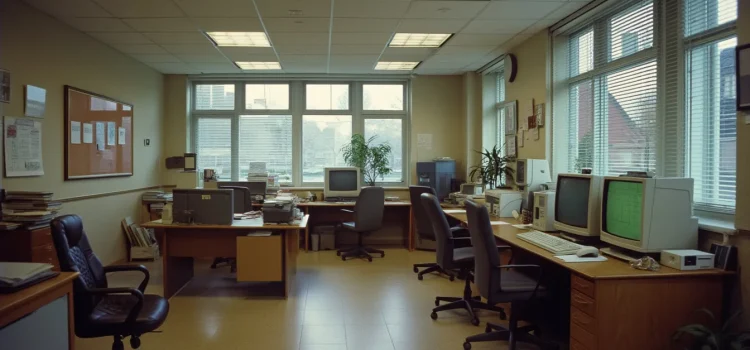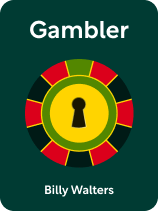

This article is an excerpt from the Shortform book guide to "Gambler" by Billy Walters. Shortform has the world's best summaries and analyses of books you should be reading.
Like this article? Sign up for a free trial here.
What made the Computer Group’s sports betting approach so successful in the 1980s? Why did the FBI come after it?
The Computer Group sports betting syndicate revolutionized gambling through sophisticated computer modeling. Their system analyzed multiple factors in sports matchups to identify and exploit inaccurate betting lines, achieving an impressive 60% win rate and generating millions in profits.
Keep reading to learn about this pioneering group from the perspective of gambler Billy Walters.
The Computer Group Sports Betting Syndicate
According to Walters, his time in Las Vegas fundamentally shaped his approach to sports betting. In particular, he writes that he became a key member of the Computer Group sports betting syndicate. The Computer Group used complex computer modeling to beat Las Vegas betting lines—the bookmakers’ predictions about which teams would win and by how much.
By working with this group, Walters earned enough money to finally pay off his outstanding debt and then some. By the mid 1980s he had accumulated a net worth of $3.5 million.
(Shortform note: Walters mentions that the Computer Group’s modeling software was the foundation of the organization’s success, but he doesn’t go into much detail about how it worked. The software analyzed numerous factors in any given matchup, such as the strength of each team’s lineup and who had the home field advantage; there are rumors that the system even factored in how far the away team had to travel. This detailed, methodical approach resulted in the Computer Group winning the majority of their bets—it’s estimated that the group had about a 60% win rate overall—and making tens of millions of dollars in the process.)
Walters explains that the Computer Group worked by identifying inaccurate sports betting lines and exploiting them.
For example, suppose the Chiefs are playing the Ravens, and the spread—the expected difference in score between the two teams—is three points in the Chiefs’ favor. This means bookmakers think there’s a 50% chance that the Chiefs will win by at least three points. It also means that, if the Chiefs win by fewer than three points (difficult as that would be in American football) bets on the Chiefs would still lose.
In this situation, if the Computer Group’s model predicted that the spread should instead be six points in the Chiefs’ favor, then the Computer Group would bet on the Chiefs accordingly. Since the bookmakers believe there’s a 50% chance that the Chiefs will win by three points, but the Computer Group predicts that the Chiefs will perform better than that, the Computer Group members should have a better-than-even chance of winning their bet.
| The Sports Betting Industry Has Advanced Along With Technology The Computer Group’s methods were remarkable in the 1980s, but nowadays most bookies take a similar technology-based approach to calculating odds and creating betting lines. In fact, many betting sites now outsource those calculations to companies that specialize in using data analysis and computer modeling to compile odds for sports betting. This outsourcing has had the unintended side effect of standardizing betting lines across competing sportsbooks—if two betting sites use the same company to compile their odds, then naturally they’ll end up with identical or near-identical lines. This means that even savvy bettors like those in the Computer Group would find it more difficult to find exploitable betting lines today. After all, if the lines are all more-or-less the same, then none of them will stand out as likely targets for gamblers like Walters and his colleagues. |
The Raid on the Computer Group
Walters’s first serious brush with the law came in 1985, when federal investigators came to suspect that the Computer Group was a massive, unsanctioned bookmaking operation.
According to Walters, the FBI sought to crack down on illegal bookmaking schemes in the 1980s. However, he clarifies that the Computer Group was actually a betting syndicate, meaning they were placing bets rather than taking them. This is a crucial point because placing bets, even as part of an organized group, is not against the law and does not require a state license like bookmaking does.
(Shortform note: Indicted members of the Computer Group, including Walters, publicly testified about their activities to emphasize that nothing they’d done had been illegal. Some news articles from that time even noted the oddity of the case against the Computer Group, saying that it was highly unusual for the federal government to prosecute sports bettors. These articles also noted that many of the charges—such as distributing betting information, which every major news outlet in the country did on a regular basis—didn’t seem actually illegal. In short, at least some of the media seemed to side with Walters and the other indicted Computer Group members, echoing their confusion and outrage at the investigation.)
For the next seven years, Walters and other members of the Computer Group were subjected to repeated investigations, raids, and trials. When charges of illegal bookmaking didn’t stick, the Justice Department reinterpreted laws to say that placing bets across state lines (which the Group regularly did) was a crime. However, even though bookmaking was illegal outside of Nevada at the time, using an illegal bookmaker was not itself illegal, so Walters was also acquitted of these new charges thanks to that legal loophole. In 1992, the federal government finally announced that it would drop all remaining charges against the Computer Group members.
Even so, the stress and publicity of the investigation, along with tension among the leadership, directly led to the Group’s dissolution.
(Shortform note: According to some reports, the actual reason the Computer Group closed down was tax evasion. While the FBI thought it was investigating a massive illegal bookmaking ring—a belief reflected in the agency’s relentless investigations, raids, and accusations—the only criminal activity the agents found was a few high-ranking Computer Group members hiding their winnings in offshore accounts. Nonetheless, that was enough for the FBI to shut down the betting ring. However, this interpretation of events conflicts sharply with Walters’s account, and it’s unclear which version is closer to the truth.)

———End of Preview———
Like what you just read? Read the rest of the world's best book summary and analysis of Billy Walters's "Gambler" at Shortform.
Here's what you'll find in our full Gambler summary:
- How a man born into poverty made over $100 million
- The three components of Billy Walters’s winning approach to sports betting
- Why Billy Walters went to prison and what he learned there






